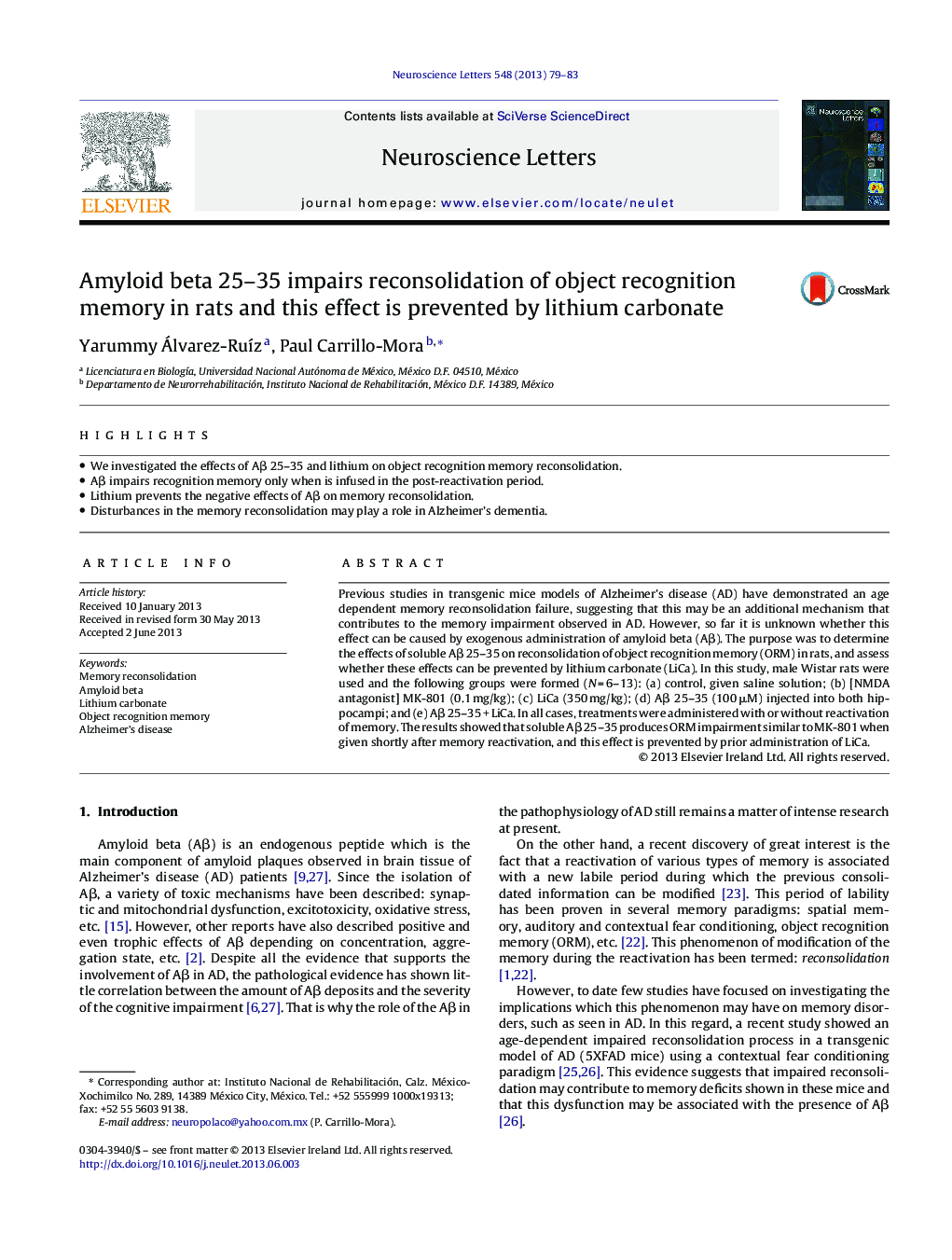| Article ID | Journal | Published Year | Pages | File Type |
|---|---|---|---|---|
| 6282967 | Neuroscience Letters | 2013 | 5 Pages |
Abstract
Previous studies in transgenic mice models of Alzheimer's disease (AD) have demonstrated an age dependent memory reconsolidation failure, suggesting that this may be an additional mechanism that contributes to the memory impairment observed in AD. However, so far it is unknown whether this effect can be caused by exogenous administration of amyloid beta (Aβ). The purpose was to determine the effects of soluble Aβ 25-35 on reconsolidation of object recognition memory (ORM) in rats, and assess whether these effects can be prevented by lithium carbonate (LiCa). In this study, male Wistar rats were used and the following groups were formed (N = 6-13): (a) control, given saline solution; (b) [NMDA antagonist] MK-801 (0.1 mg/kg); (c) LiCa (350 mg/kg); (d) Aβ 25-35 (100 μM) injected into both hippocampi; and (e) Aβ 25-35 + LiCa. In all cases, treatments were administered with or without reactivation of memory. The results showed that soluble Aβ 25-35 produces ORM impairment similar to MK-801 when given shortly after memory reactivation, and this effect is prevented by prior administration of LiCa.
Keywords
Related Topics
Life Sciences
Neuroscience
Neuroscience (General)
Authors
Yarummy Álvarez-RuÃz, Paul Carrillo-Mora,
